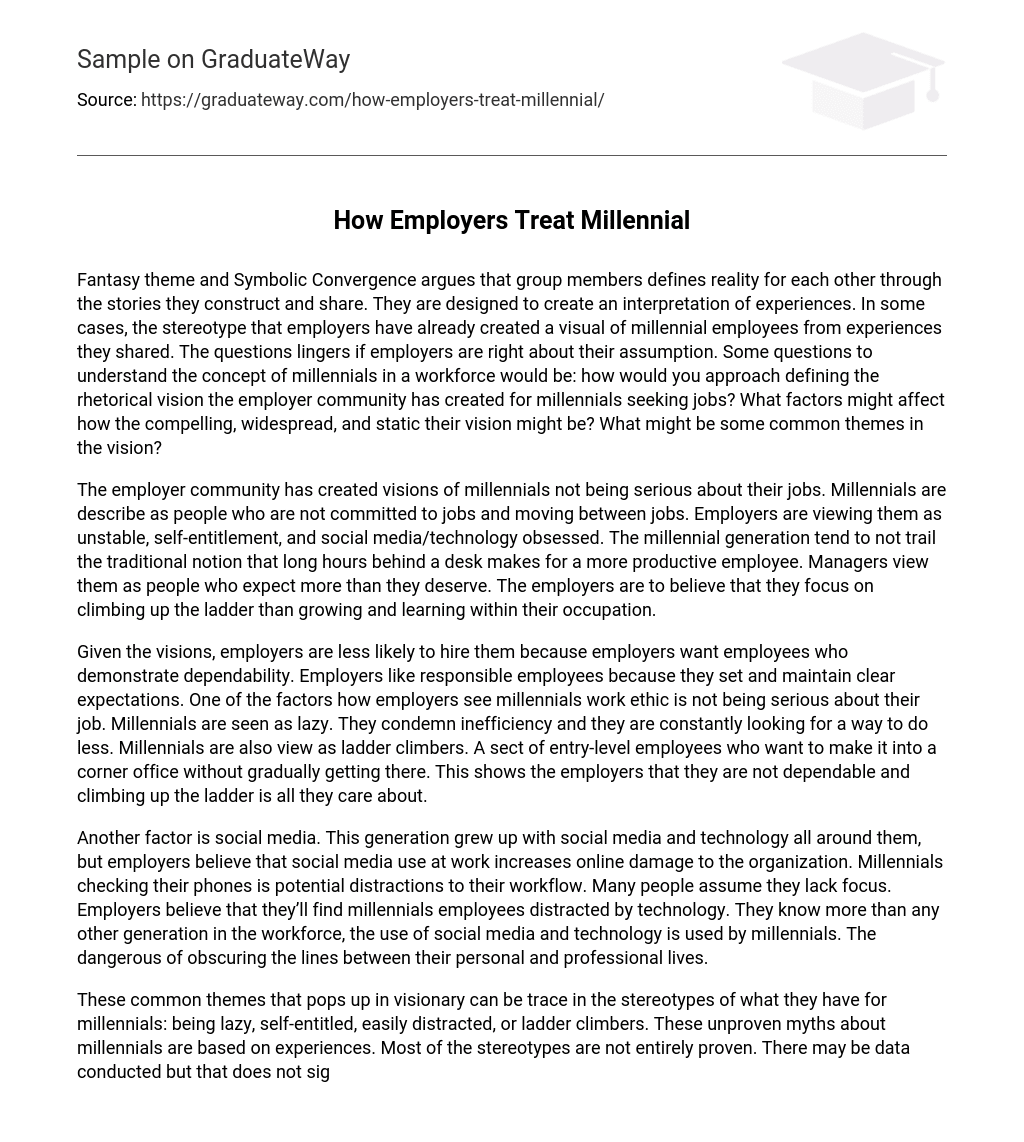Fantasy theme and Symbolic Convergence argues that group members defines reality for each other through the stories they construct and share. They are designed to create an interpretation of experiences. In some cases, the stereotype that employers have already created a visual of millennial employees from experiences they shared. The questions lingers if employers are right about their assumption. Some questions to understand the concept of millennials in a workforce would be: how would you approach defining the rhetorical vision the employer community has created for millennials seeking jobs? What factors might affect how the compelling, widespread, and static their vision might be? What might be some common themes in the vision?
The employer community has created visions of millennials not being serious about their jobs. Millennials are describe as people who are not committed to jobs and moving between jobs. Employers are viewing them as unstable, self-entitlement, and social media/technology obsessed. The millennial generation tend to not trail the traditional notion that long hours behind a desk makes for a more productive employee. Managers view them as people who expect more than they deserve. The employers are to believe that they focus on climbing up the ladder than growing and learning within their occupation.
Given the visions, employers are less likely to hire them because employers want employees who demonstrate dependability. Employers like responsible employees because they set and maintain clear expectations. One of the factors how employers see millennials work ethic is not being serious about their job. Millennials are seen as lazy. They condemn inefficiency and they are constantly looking for a way to do less. Millennials are also view as ladder climbers. A sect of entry-level employees who want to make it into a corner office without gradually getting there. This shows the employers that they are not dependable and climbing up the ladder is all they care about.
Another factor is social media. This generation grew up with social media and technology all around them, but employers believe that social media use at work increases online damage to the organization. Millennials checking their phones is potential distractions to their workflow. Many people assume they lack focus. Employers believe that they’ll find millennials employees distracted by technology. They know more than any other generation in the workforce, the use of social media and technology is used by millennials. The dangerous of obscuring the lines between their personal and professional lives.
These common themes that pops up in visionary can be trace in the stereotypes of what they have for millennials: being lazy, self-entitled, easily distracted, or ladder climbers. These unproven myths about millennials are based on experiences. Most of the stereotypes are not entirely proven. There may be data conducted but that does not signify every millennial. Most millennials are ambitious and efficient workers. The truth is that while employers think they understand the millennial generations, the details just don’t support these stereotypical opinions. Understanding millennials and the role they play in today’s multigenerational workforce can help you create a stronger hiring strategy to attract the best and brightest this generation has to offer.





